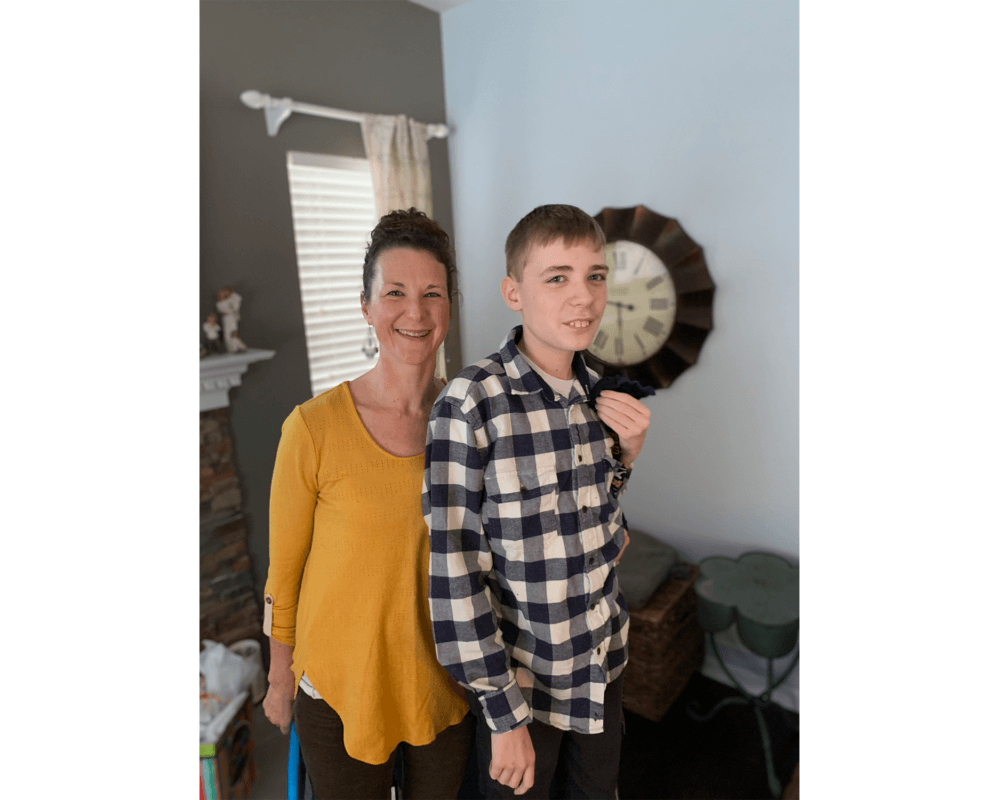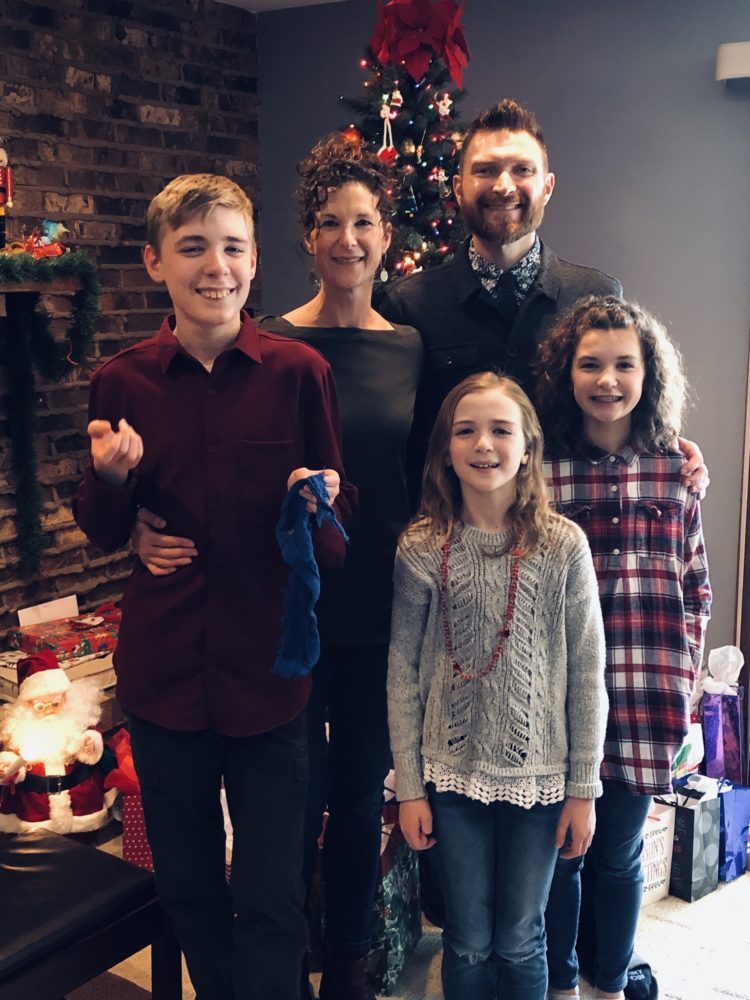
The Paradox of an Aging Special Needs Child” – Beth
Standing in front of my kitchen sink in the cold, blue, January dawn, I run the warm water to wipe off my son’s face before he heads off to high school. The washcloth steams visibly in the frigid morning air as I carefully wipe off Benny’s face, getting off any traces of breakfast or sleepy eyes. He turns 15 in a week. I realize that I have to reach up to wipe off his face. He’s now taller than I am. I’m struck by the poignancy of this moment.
I shouldn’t have to reach up to wipe off my son’s face, I’ve been doing this for 15 years because he can’t do it well just yet. His sleepy smile appears from under the washcloth. We enjoy the quiet 
In so many ways, he’s the teenage boy I expected him to be. Like his dad, he is a sports fanatic, often telling us about upcoming college basketball games or golf tournaments he’s seen advertised on ESPN—and don’t be fooled, he’s got an amazing memory, so he won’t let anyone forget about these events. He pulls from the typical teenage playbook with such favorites as ignoring mom, protesting bedtime, and wanting more screen time. He wants to play more complicated iPad sports games, but it’s often difficult because he doesn’t have the motor planning to play. Sometimes he’ll refuse to walk with us when we’re at a school function or Special Olympics. He’s been sleeping later on the weekends and we have also found that he’s beginning to notice girls. We can tell when he’s got a crush on certain girls because he’ll gravitate toward them and when we mention their names, he gets very bashful, even giddy. And physically, he’s a teenager; he’s getting taller and needs to shave now.
His sisters often ask if we think Benny will drive; he is near driving age, after all. We tell them that he probably won’t drive. Thinking about instances like this, where his path deviates from the typical, makes me a little sad. I’ve taken to letting him put the car in “park” when we get to a destination. He thinks it’s funny. But even so, I have to hand-over-hand the motion because he can’t push the button and shift at the same time. That’s probably a good thing, so he won’t slam the car into park anytime he wants.
But then there are those times when I see my little boy Benny. He’ll still choose to watch Mickey Mouse Clubhouse when he gets a chance. He still needs assistance showering and brushing teeth. He’s trying, but we need to help him. Dad uses the electric razor to shave his face. He’s learning how to get dressed and has mastered many steps of the process, but we need to help in the more difficult steps of getting arms through sleeves or putting on and tying shoes—not many Velcro shoes in a men’s size 11. He can unzip his coat but not zip it up yet. We’re still coaching him on how to “stab” his food with a fork instead of shovel it around his plate. We assist him while walking in parking lots because he won’t look both ways. These vestiges of early childhood are reminders that GAMT stole independence from our boy.
As Benny grows physically into a man, we’re left to ponder this paradox developing before us. Where do we go from here?
I think many parents of special needs children can relate to this. How do we adjust as they get older?
The more I reflect on the situation, the more I feel a sense of peace. It’s not something I need to reconcile. It’s not something I need to make sense of. If Benny has taught us anything, it’s that life doesn’t always need to make sense. Falling into that trap can be consuming. He’s not asking anything of us but to love him. I can celebrate the man he’s turning into and, at the same time, I can continue to help him in the times when he needs us.






